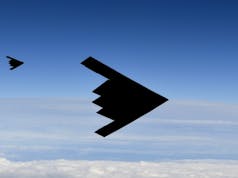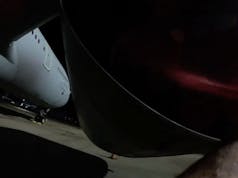Reaper drones have provided air support to Iraqi forces fighting in northern Iraq and Syrian opposition forces engaged with Islamic State.
Reaper remotely piloted aircraft have continued to be very active in both their surveillance and attack roles over Iraq and Syria.
The General Atomics MQ-9 Reaper is an unmanned aerial vehicle capable of remote controlled or autonomous flight operations, developed by General Atomics Aeronautical Systems primarily for the United States Air Force.
In 2006, the then–Chief of Staff of the United States Air Force General T. Michael Moseley said: “We’ve moved from using UAVs primarily in intelligence, surveillance, and reconnaissance roles before Operation Iraqi Freedom, to a true hunter-killer role with the Reaper.”
A Reaper operated in close support of Iraqi ground forces in northern Iraq, around the Sharqat and Qayyarah areas, on Saturday 23 July. The Reaper’s crew conducted a successful attack, using a Hellfire missile against a Daesh mortar team firing on the Iraqis. They also provided targeting support to several highly accurate strikes by both artillery and coalition fast jets, which destroyed a number of rocket launchers.
The following day, another Reaper flew over northern Syria to support Syrian moderate opposition forces fighting Daesh terrorists along the so-called Mar’a Line.
The Reaper used a Hellfire missile to destroy a terrorist position which had been firing at the Syrians. The Reaper then used its sensors to locate a second position, which was successfully struck by another coalition aircraft.
Operation Shader is the operational code name given to the British participation in the ongoing military intervention against the Islamic State. The operation began in Iraq on the 26th of September 2014, following a formal request for assistance by the Iraqi government.
Prior to this, the Royal Air Force had been engaged in a humanitarian relief effort over Mount Sinjar, which involved multiple aid airdrops by transport aircraft and the airlifting of displaced refugees.
In October 2014, the intervention had extended onto Syria with the Royal Air Force only mandated to conduct surveillance flights over the country. In December that year, the House of Commons approved British airstrikes against IS in Syria.
The UK is one of several countries directly involved in the ongoing Syrian conflict that started in March 2011. By June 2016, the Ministry of Defence had announced that over 1,000 personnel were engaged in theater and that the Royal Air Force had conducted around 900 airstrikes, flying over 2,200 sorties, killing almost 1,000 IS fighters.











